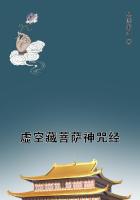Moreover artisans were often more or less on the move, and this was especially the case with those who were engaged in the building trades, and those who worked in metal and wood; though no doubt the "wander years" were chiefly those of youth, and after these were over the wanderer was likely to settle down in the place in which he was born.Again, there seems to have been a good deal of migration on the part of the retainers of the landed gentry, especially of the greater barons who had seats in several parts of the country.And lastly, in spite of the selfish exclusiveness which the gilds developed as years went on, the towns offered in England as elsewhere a refuge to many who could get no good openings for work and for marriage in their own homes.In these various ways some elasticity was introduced into the rigid system of medieval economy; and population was able to avail itself in some measure of the increased demand for labour which came gradually with the growth of knowledge, the establishment of law and order, and the development of oceanic trade.(23*)In the latter half of the seventeenth and the first half of the eighteenth century the central government exerted itself to hinder the adjustment of the supply of population in different parts of the country to the demand for it by Settlement laws, which made any one chargeable to a parish who had resided there forty days, but ordered that he might be sent home by force at any time within that period.(24*) Landlords and farmers were so eager to prevent people from getting a "settlement" in their parish that they put great difficulties in the way of building cottages, and sometimes even razed them to the ground.In consequence the agricultural population of England was stationary during the hundred years ending with 1760; while the manufactures were not yet sufficiently developed to absorb large numbers.This retardation in the growth of numbers was partly caused by, and partly a cause of, a rise in the standard of living; a chief element of which was an increased use of wheat in the place of inferior grains as the food of the common people.(25*)From 1760 onwards those who could not establish themselves at home found little difficulty in getting employment in the new manufacturing or mining districts, where the demand for workers often kept the local authorities from enforcing the removal clauses of the Settlement Act.To these districts young people resorted freely, and the birthrate in them became exceptionally high; but so did the death-rate also; the net result being a fairly rapid growth of population.At the end of the century, when Malthus wrote, the Poor Law again began to influence the age of marriage; but this time in the direction of making it unduly early.The sufferings of the working classes caused by a series of famines and by the French War made some measure of relief necessary; and the need of large bodies of recruits for the army and navy was an additional inducement to tender-hearted people to be somewhat liberal in their allowances to a large family, with the practical effect of making the father of many children often able to procure more indulgences for himself without working than he could have got by hard work if he had been unmarried or had only a small family.Those who availed themselves most of this bounty were naturally the laziest and meanest of the people, those with least self-respect and enterprise.So although there was in the manufacturing towns a fearful mortality, particularly of infants, the quantity of the people increased fast; but its quality improved little, if at all, till the passing of the New Poor Law in 1834.Since that time the rapid growth of the town population has, as we shall see in the next chapter, tended to increase mortality, but this has been counteracted by the growth of temperance, of medical knowledge, of sanitation and of general cleanliness.Emigration has increased, the age of marriage has been slightly raised and a somewhat less proportion of the whole population are married; but, on the other hand, the ratio of births to a marriage has risen;(26*) with the result that population has been growing very nearly steadily.(27*) Let us examine the course of recent changes a little more closely.
同类推荐
热门推荐
暖婚成宠:纪太太,早安
她是一个平凡普通的小白领,简言。他是纪氏少主纪元韩,沉稳内敛,稳操胜券。刚刚从法国回来就与她偶遇,她并无过人之处,只是让他移不开眼。简言亮出钻戒:“看好了,我可是已婚妇女。”他只是瞥了一眼:“钻戒太小了,还是个假货,如果打官司,你老公绝对干不过我。”暗中调查她的身份,发现她竟然是穆氏集团的少夫人?只是好像……酒吧里,简言被他逼入死角。“你你你……”一张薄唇压下,简言很快就在他温柔的攻势中沦陷……事后,他舔舔嘴角,意犹未尽:“穆太太这么生涩,难道从来没接过吻?”“……”此后,死缠烂打,花样百出。她彻底告别平淡无奇的生活,屡屡登上头条,成为全城热议……















